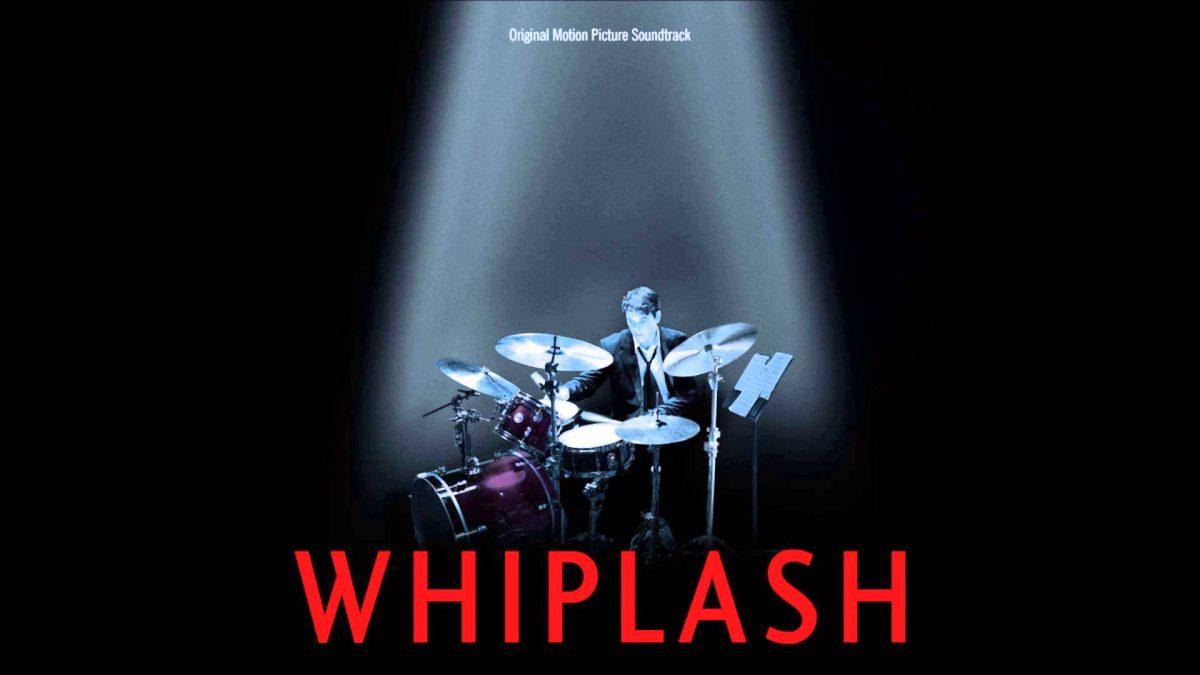3/5 Stars
At one point in time, I found myself at a crossroads in life. Either I could follow my passion toward writing and politics and pursue a degree in journalism, or I could say “fuck it” to rationality and job security and pursue a career as a jazz guitarist. I chose the former, but perhaps its with the idea of the road less traveled still in mind that I was initially drawn to “Whiplash,” the story of a jazz drummer’s manic quest toward becoming one of the greats. However, if the plot of “Whiplash” is any indication, the road less traveled is one ripe with potholes, speed-bumps and, in fact, isn’t a road at all, but rather an infinite circuit.
“Whiplash follows” Andrew Neiman (Miles Teller), a freshman at the prestigious Shaffer Conservatory, as he joins the studio band of the enigmatic Terence Fletcher (J.K. Simmons). What follows is a plot that drags incessantly, rolling in threads of redundancy and, though only a meager 106 minutes, leaves the watcher begging for a swift end halfway through. In his quest for jazz stardom, the “jumbo shrimp” of the music world Neiman falls down a rabbit hole of obsession, playing until his hands pour blood and ostracizing himself from everyone he loves. While this is certainly an interesting concept, “Whiplash” presents a narrative much more along the lines of “Fletcher yells at Neiman, Neiman tries harder,” repeated ad infinitum before inevitably culminating into a rather cliche “student becomes the master” finale.
While “Whiplash” effectively fails to create a truly nuanced and complex story, it shines in the groundbreaking performances of Simmons and Teller. Simmons’ Fletcher is a sadistic, manipulative monster of a person, undoubtedly reminiscent of his role as Vernon Schillinger on the beloved HBO classic “Oz” as well as jazz ensemble rendition of “Full Metal Jacket”‘s Gunnery Sergeant Hartman. Fletcher takes a bold path of tormenting his students into perfection by using tactics of manipulation alongside physical and emotional abuse, at one point having a friendly conversation with Neiman about his life and encouraging him to “just have fun,” only to use information gathered about his estranged mother to berate him during his performance. While little information is given about the history of Fletcher, Simmons’ portrayal creates an extremely complex character that carries the weight of much of “Whiplash.”
Fletcher: You are a worthless, friendless, faggot-lipped little piece of shit whose mommy left daddy when she figured out he wasn’t Eugene O’Neill, and who is now weeping and slobbering all over my drum set like a fucking 9-year old girl! So for the final, FATHER-FUCKING time, SAY IT LOUDER!
Neiman: I’M UPSET!
Fletcher: Start practicing harder, Nieman.
Meanwhile, Teller trained with Nate Lang, who plays rival drummer Carl in the film, to become a jazz drummer. Teller actually plays the vast majority of the drumming featured in “Whiplash,” which is a feat in and of itself. However, Teller’s portrayal of Neiman goes beyond the musical component to create a truly unique protagonist. Neiman’s pursuit of drumming greatness borders on the lines of obsession and sociopathy. At one point, Neiman dumps his girlfriend Nicole (Melissa Benoist) with an explanation that he is going to be one of the greats and she would only hold him back. Neiman is hardly loveable, but rather a desperate, lonesome soul convinced that the only way to truly obtain meaning in his life is to cement his place in the history books. It’s a bold practice to center a film around two characters which are generally unlikeable people, but in fact it is this dynamic in “Whiplash” that truly creates a unique watching experience.
“Whiplash” is a polarizing viewing experience. Does it provide a strong, multifaceted plot for the viewer to immerse themselves in? Nope. Does it accurately portray what life is like in a jazz ensemble? Probably not. Does it feature some of the best acting to come out of this year’s Oscar nominations? Absolutely. Thus, “Whiplash” is a film one should go into for an appreciation of character drama and remarkable performances, even if the story missed a beat or two.







